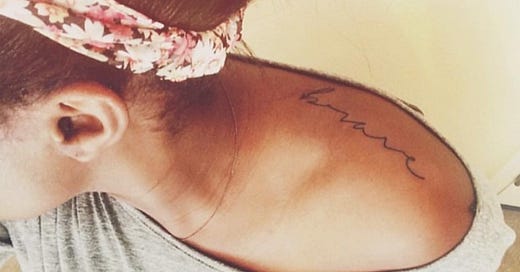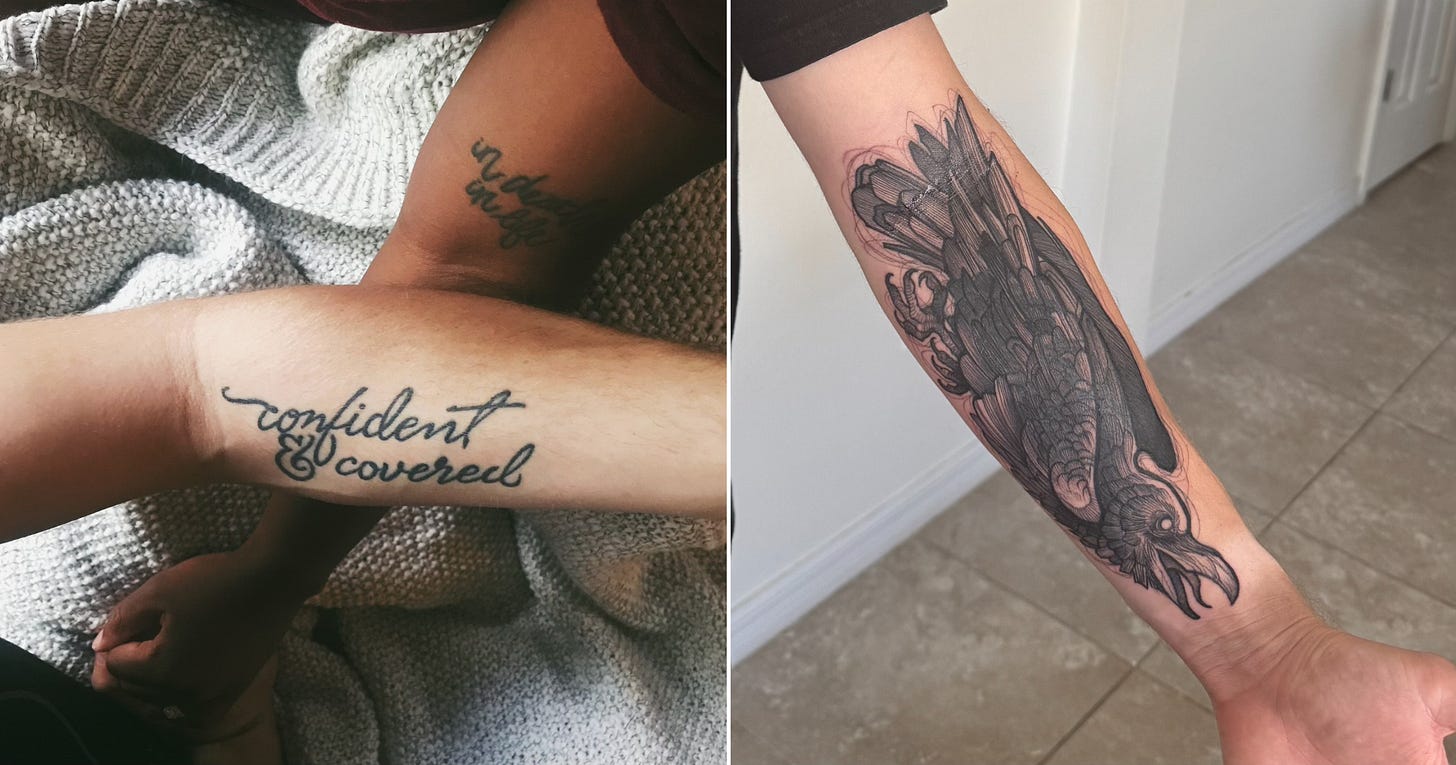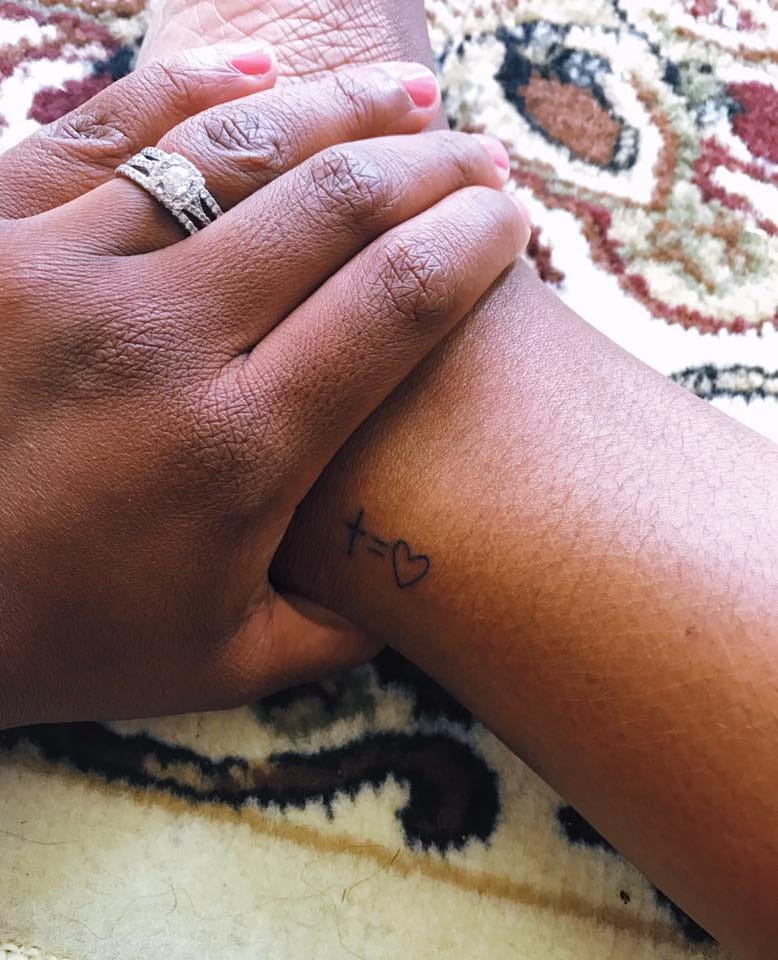It’s a pleasant sunny morning. My iPhone earbuds are blasting a song with lyrics I can’t forget, even fifteen years later: I plead your blood / over my sins / and the sins of my nation / God, end abortion / send revival / to America. I’m standing on a sidewalk a couple hundred feet from a nondescript building, and tears are streaming down my face. The gravity of the moment isn’t lost on me. When I close my eyes, I can picture God looking down from heaven approvingly. I’m obedient to him.
The protest isn’t endorsed by my family or my church. It isn’t even called a protest but a prayer rally. When a school friend asks if I’ll join her, I can’t think of a reason to say no. Besides, it’s not like we’ll be disruptive. We aren’t waving signs or screaming in people’s faces — instead, we pray from afar for each person who enters and exits the building. Some people mutter their prayers under their breath, while others remain silent. This feels like a good idea. A noble one. When it is over, I feel like I’ve accomplished something.
I now view the whole thing as shameful, judgmental, and strange. I recently scrolled through thousands of Facebook photos to make sure there wasn’t any proof. Even though I mercifully can’t find any digital documentation, I remember it all clearly. We stood in a straight line on the sidewalk, our heads solemnly bowed. It felt peaceful, but in retrospect, it was imposing, maybe even threatening. Today, I’m a supporter of bodily autonomy. But then? Abortion was murder. I would’ve bet anything on it. I felt heartbroken watching women walk out of the clinic. How presumptuous of me.
Having bad ideas as a teenager isn’t exactly revolutionary, but I’m struck by my confidence, given how incorrect I was. But there wasn’t nuance, no need for gray areas. I trusted God and his will for my life, and that was that. If the Bible said it, I believed it. The things I heard at church were unquestionably true. If I lived my life the right way, I’d go to heaven. I could’ve shouted it from the rooftops. Or permanently inked it on my skin.
If you ask if I have tattoos, the answer depends on my mood. They’re easily concealed, and it feels silly to even acknowledge them, like I’m pretending to be something I’m not. When comparing myself to someone who’s covered, it’s laughable to even say yes. But as insignificant as it feels, they tell the story of my early 20s — one I’d sometimes rather forget.
One of my earliest memories is a roaring church service where people jumped up and down, shouting in tongues. It wasn’t anything extraordinary for us — just an average Sunday. As a child, I assumed tattoos were sinful, only for people who wanted to desecrate their bodies. Same with piercings. I can’t tell you how much of this was explicitly taught, but I internalized it nonetheless. I looked on with envy at my friends who wore earrings and counted down till the days I could wear whatever I wanted. Of course, I felt guilty for being secularly minded.
My beliefs shifted as I got older and became more worldly. A few months after my eighteenth birthday, I drove to Claire’s at the local mall and winced at the sharp pain as the piercing gun made tiny holes in my earlobes. The whole thing wasn’t a big deal. Still, it felt symbolic. I didn’t plan to modify my body any further than the gold studs I was wearing. But in college, it felt like everyone around me was getting tattoos. Why not me?
I was twenty-one the first time I walked into a tattoo studio. The idea came to me a few months prior — “brave” in a cursive script in honor of a lifelong battle with anxiety. The Bible says God gives us courage, and I desperately wanted to believe it. What better way to prove my devotion than with a constant reminder? I was terrified but determined. The artist stopped himself from rolling his eyes when I told him I’d made a playlist for the tattoo to distract myself from the pain; it took less than ten minutes. When I saw a picture of my shoulder for the first time, I almost freaked out at the irreversibility of it all. But I knew I wanted more.
A year later, I found myself back in the same strip mall, this time with my fiancé in tow. We got matching tattoos, pulled from the same song and loosely inspired by a Bible verse: “In death, in life” for me; “confident and covered” for him. Was it clear what they meant? I didn’t stop to think about how they’d look standalone or if we’d one day regret picking prominent placements. He started to doubt his soon after. Last month, he traveled to Georgia for a cover-up from a well-known artist — it was an expensive mistake, but one that ended okay for him. He says he no longer cringes when he looks at his arm. I’m left with mine, too lazy to brainstorm a way to fix it. Or to discern whether I even want to.
This was an impulse I spent all of an hour considering. I made it small enough that it wouldn’t matter if I one day regretted it (thank you so much, past self). The message is pretty straightforward — God is love — although I’m not sure why I needed it etched into my skin. Thankfully, it’s so inconspicuous that only a handful of people have even noticed, and it’s faded so much that I imagine it’ll soon be a blob, which I won’t mind. I don’t think about this one unless I’m wearing flip-flops.
If you’d asked me ten years ago whether I’d be super religious today, my response would’ve been a rousing “duh.” I was so convinced of the things I knew to be true that I didn’t consider a future where I’d view the world differently. Life is much easier when you’re sure of something. Certainty is a gift. Until it all comes crashing down.
Much like I can’t pinpoint when I became a devoted Christian, I can’t tell you when a lot of it began to fall away. Some people might use the term deconstruction to describe my experience, but it no longer resonates with me. It wasn’t a big, dramatic event, but a gradual dismantling and repairing — a journey I’m still on today. And that’s why I don’t know what to make of 20-something Ayana and her assuredness.
One week after our wedding, my husband and I moved across Florida so he could work at a megachurch. I couldn’t help but think that we were lucky to have found his dream job so early. And yet, it fell apart after two years, and we left more bitter than we’d arrived. That’s when some of it started to crumble. I started to look at myself in the mirror with a sense of uneasiness, like I was a walking billboard for someone I no longer knew. The tattoos are unnoticeable to most people, but I couldn’t forget they were there, and it troubled me.
I wonder why I didn’t get a journal with “brave” on the cover or settle for ✞=♡ wall art. Surely, my husband and I would’ve been better served if we’d just blared the song we enjoyed instead of tattooing the lyrics on our bodies. Also, why did I feel the need to advertise so fiercely for God? No free clout, as the kids say. In seriousness, these questions still bug me, and I think it’s bigger than the tattoos. It’s what it all signifies: I was once positive about all of this, and now I’m not, but I can’t escape my former confidence.
I started attending my current church eight years ago, one that teaches non-violence and liberation instead of Christian nationalism and domination. It fits within a progressive framework, and I enjoy Sunday mornings again. My way of viewing the world is one that many people would probably call heretical. Maybe they’re right. It’s mine nonetheless.
I don’t care enough to spend the time or money covering anything up. Instead, I appreciate them as a time capsule, a reminder of what I once was. I don’t have any interest in returning, and I don’t have to. I have no choice but to make room for my previous convictions, misguided as they may have been. As much as I’d love to forget sometimes, there are inescapable signs.
I saw relief in my husband’s eyes the first time he showed me his new tattoo. He no longer has to explain himself to anyone. The significance of the bird that replaced the script? “I wanted a raven,” he says proudly. “That’s it.” No deep meaning or potentially regrettable sentiment. If I ever get another, I’ll take a page from his book. Until then, I’ll continue to hope no one notices my tattoos — and if they do, I’ll tell them it’s complicated.
Header images created by ransomizer.com.











“Life is much easier when you’re sure of something. Certainty is a gift. Until it all comes crashing down.”
Gosh, I feel this in my bones. I loved reading this. Thank you for sharing it.
Reminds me of Chris Llewellyn’s song ‘Naive’ - worth a listen if you haven’t heard it.
This part: “Instead, I appreciate them as a time capsule, a reminder of what I once was. I don’t have any interest in returning, and I don’t have to. I have no choice but to make room for my previous convictions, misguided as they may have been. As much as I’d love to forget sometimes, there are inescapable signs.” 😮💨 As someone with a Bible verse tattoo, this really hits. As complicated as it feels to reckon with my former self, this feels like such a healthy reframe. Thank you, Ayana 💜